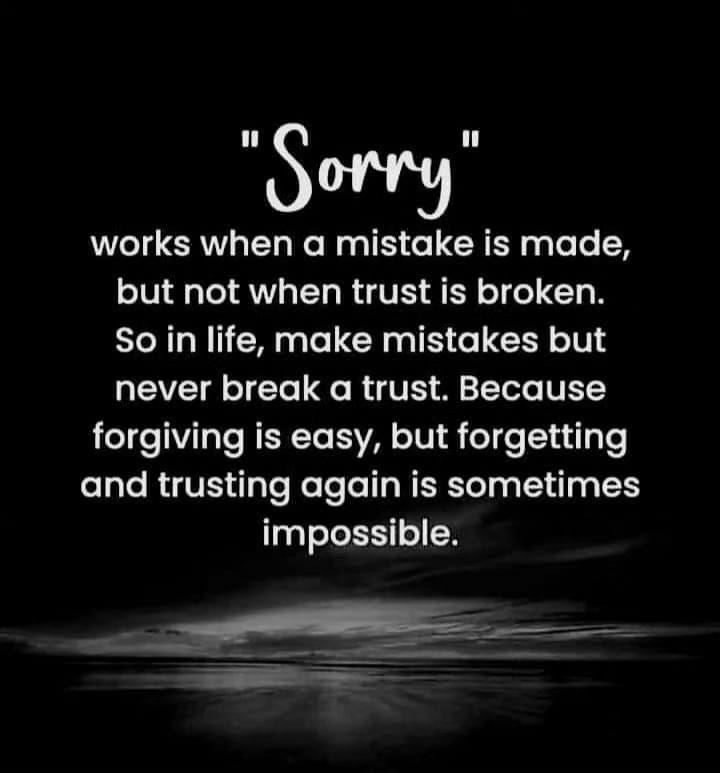There are two facets of trust—we trust people’s intentions and we trust their competency.
Competency can be grown, so an “honest mistake” like a math error or a date mix-up can be acknowledged and fixed, and people will still basically trust us (although they may double-check our work for a while).
But when someone breaks our trust of their intentions, they have revealed something in their character. It’s not an easy fix.
If someone does something deceptive, we will always wonder if they are lying to us again.
If someone does something selfish, we will always wonder if they are trying to take more than their fair share.
If someone does something manipulative, we will consider everything they say may be designed to trick us.
If someone tells us they will do something and then doesn’t do it and lets us down, we will consider them flaky and unreliable (unless there are “extraordinary circumstances” like a medical emergency).
As leaders and as human beings, we should approach every interaction as a reflection on our competency and our intentions… because it is.
(image source: https://www.facebook.com/photo/?fbid=737734461706764&set=a.671390785007799)



